Description: just a list of good things to watch from British yesteryear
Creator: tardisrider
Posted: 4 years ago
|
|
Favorite
31 favorites
8156 views
|
|
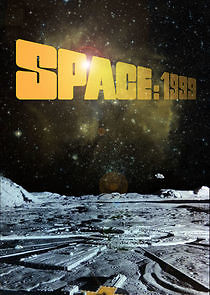
info
|
TV Show:
Space: 1999
( 1975 )
It's 1999 and Moonbase Alpha has been built on the Moon to safeguard the nuclear waste shipped from Earth. On September 13, 1999, disaster strikes and the nuclear waste explodes, causing a chain reaction that hurls the Moon out of Earth's orbit and into deep space.
|
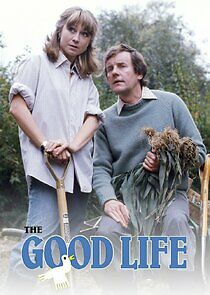
info
|
TV Show:
The Good Life
( 1975 )
Tom and Barbara Good are a middle class suburban couple who on Tom's 40th birthday decide to turn their Surbiton home into a self-sufficient allotment. They grow their own food, keep farm animals and have sold or bartered all of their electrical appliances as they have no electricity. This creates friction with their best friends and next door neighbours, Jerry and Margo Leadbetter. But even though the Goods have lowered the tone of the neighbourhood in the Leadbetter's eyes they still can't help but be best of friends.
|
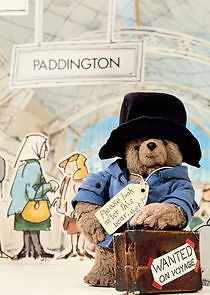
info
|
TV Show:
Paddington
( 1975 )
Paddington is a series of British animated shorts based on the Paddington Bear book series by Michael Bond produced by FilmFair. This was the first television series based on the popular children's book Paddington Bear. In the United States it was usually shown on pay television as filler in between programmes.it was also shown in Australia on the ABC In the early 1980s Its narrator was actor Michael Hordern. The series has a very distinctive art style. Paddington himself is a stop-motion animated puppet who moves within a 3-dimensional space and interacts with 2-dimensional animated drawings of the human characters, buildings, etc.
|
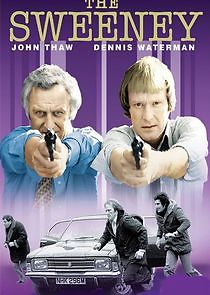
info
|
TV Show:
The Sweeney
( 1975 )
The Sweeney was one of the finest British police series of the mid 1970s. Jack Regan is a hard edged detective in the Flying Squad of London's Metropolitan police (called 'the Sweeney' from the Cockney rhyming slang 'Sweeney Todd' = 'Flying Squad"). He pursues villains by methods which are underhand, often illegal, frequently violent, and more often than not, successful.
|
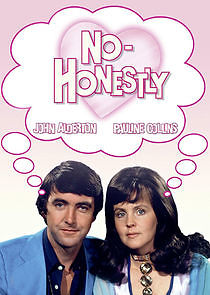
info
|
TV Show:
No, Honestly
( 1974 )
No, Honestly featured Clara and Charles "CD" Danby, a newlywed couple. Clara was a ditzy dreamer who hoped to write books for children. Charles, by contrast, was a struggling actor with a more serious streak. At the start of each episode, the couple appeared in front of an audience telling stories about their first meeting, courtship and life as newlyweds. The entire programme, therefore, was a series of flashbacks as the couple recounted the earlier days of their romance.
|
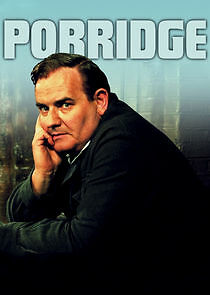
info
|
TV Show:
Porridge
( 1974 )
Classic comedy series about the inmates and wardens of HM Prison Slade.
|
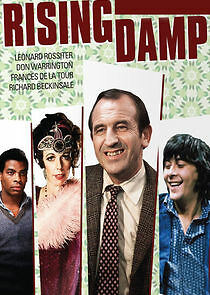
info
|
TV Show:
Rising Damp
( 1974 )
Popular sitcom set in a seedy bedsit lorded over by the mean, vain, boastful, cowardly landlord Rigsby. In each episode, his conceits are debunked by his long suffering tenants.
|
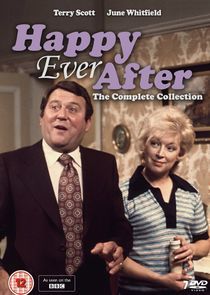
info
|
TV Show:
Happy Ever After
( 1974 )
Happy Ever After is a British sitcom starring Terry Scott and June Whitfield. It aired from 7 May 1974 to 25 April 1979.The series was co-written by scriptwriters John T. Chapman, Eric Merriman, Christopher Bond, John Kane and Jon Watkins.Terry and June Fletcher are a middle-aged, middle-class couple who find themselves alone when their grown-up children, daughters Susan and Debbie, leave home. However, they are not alone for long as Aunt Lucy comes to live with them, along with her talking mynah bird.Terry frequently hits upon an idea, which due to his foolhardy and obsessive manner he then continues with whatever the consequences, while June remains patient and tolerant.
|
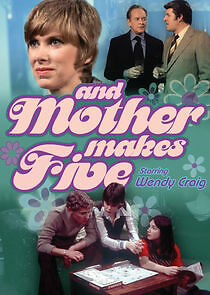
info
|
TV Show:
And Mother Makes Five
( 1974 )
...And Mother Makes Five is the final series of Thames' highly popular sitcom ...And Mother Makes Three saw widow Sally Harrison and widower David Redway finally getting spliced after a protracted on-off romance. This sequel series hilariously charts Sally's ongoing tribulations, with the scatterbrained mum and her rambunctious teenaged sons Simon and Peter now sharing a home with antiquarian bookseller David and his daughter Jane.
|
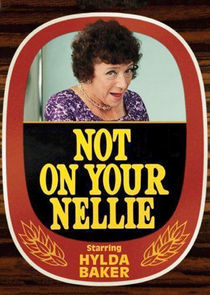
info
|
TV Show:
Not on Your Nellie
( 1974 )
Nellie Pickersgill is a strong willed woman, and hater of strong drink. In spite of this, she leaves her home in Bolton, and moves to London to help her father Jed to run his pub The Brown Cow. Jed spends his time propping up the bar, gambling and groping passing females. Nellie disapproves of her father's lifestyle choices as she does of the loose women employed as barmaids and the assortment of odd characters who frequent the pub.
|
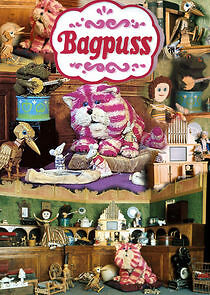
info
|
TV Show:
Bagpuss
( 1974 )
Strange as it may seem, Oliver Postgate and Peter Firmin made only 13 episodes of Bagpuss, but they've captured the imaginations of children for over a quarter of a century. Bagpuss is a cat who spends his time slumbering in a shop owned by Emily. The shop itself doesn't sell anything, and Emily seems a little young to be a shopkeeper - it is a most unusual shop, after all. Each week Emily brings Bagpuss objects to mend and repair. Bagpuss will wake up and examine them, in the company of his friends - including Madeleine the rag doll, and the mice from the Marvellous Mechanical Mouse Organ. All this happens under the watchful eye of Professor Yaffle, the carved woodpecker book end, who comments scathingly on the toys and the stories they tell. Then at some point, Bagpuss becomes very very tired, and they all go back to sleep. That's basically it, so why did this all happen? Simp...
|
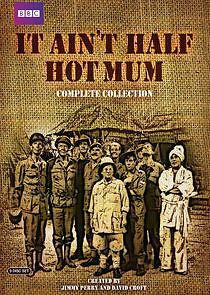
info
|
TV Show:
It Ain't Half Hot Mum
( 1974 )
Comedy about the exploits of a Royal Artillery Concert Party during the Second World War. The action is set in Deolali: a British army camp 100 miles north east of Bombay.
|
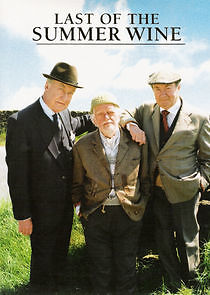
info
|
TV Show:
Last of the Summer Wine
( 1973 )
Last of the Summer Wine is a British sitcom created and written by Roy Clarke that was originally broadcast on the BBC. Last of the Summer Wine premiered as an episode of Comedy Playhouse on 4 January 1973 and the first series of episodes followed on 12 November 1973. From 1983 to 2010, Alan J. W. Bell produced and directed all episodes of the show. The BBC confirmed on 2 June 2010 that Last of the Summer Wine would no longer be produced and the 31st series would be its last. Subsequently, the final episode was broadcast on 29 August 2010. Tom Owen criticised the BBC for not permitting a special final episode. Roy Clarke, however, stated that he was fully aware this was the last series, and preferred the show to have a quiet ending. The final line was said by Peter Sallis, the longest serving actor. Repeats of the show are broadcast in the UK on Gold, Yesterday and Drama. It is also seen in more than twenty-five countries,including various PBS stations in the United States and on VisionTV in Canada. Last of the Summer Wine is the longest-running comedy programme in Britain and the longest-running sitcom in the world.
|
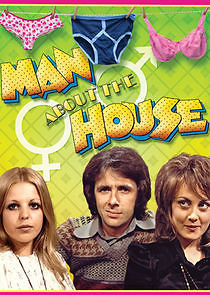
info
|
TV Show:
Man About the House
( 1973 )
Young flatmates Chrissy and Jo find a stranger, student chef Robin Tripp, asleep in their bath the morning after the farewell party for their departed flatmate Eleanor. Learning that he is staying at the YMCA and is looking for a place, they easily convince him to move in, making it clear, however, that their relationship will be purely platonic. When landlord George Roper objects to the mixed-sex living arrangement, Chrissy tells him that Robin is gay.
|
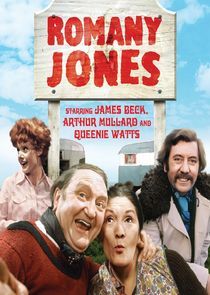
info
|
TV Show:
Romany Jones
( 1973 )
Romany Jones is a British sitcom made by LWT, It starred Arthur Mullard and Queenie Watts as Wally and Lily Briggs.
|
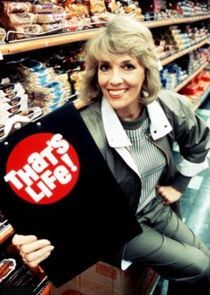
info
|
TV Show:
That's Life!
( 1973 )
That's Life! is a BBC series that dealt with consumer issues. As well as tackling the more serious issues around the country, the series also took a look at the more light-hearted going's on as well.
|
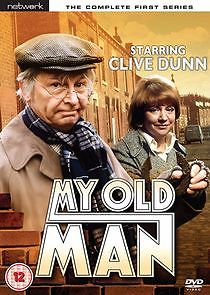
info
|
TV Show:
My Old Man
( 1973 )
Retired engine driver Sam Cobbett has been prised from his terraced house in Ironmonger Row by the crowbars of the demolition men. With Sam needing a new home, an obvious solution emerges in the shape of the spare room in his daughter's new high-rise flat. Sam is, all things considered, a reasonable man. He fought in two world wars, and he's seen a lot of life. It's just that he has some rather strong ideas on how to live it, and they're not usually shared by his social-climbing son-in-law, Albert--whom Sam takes much delight in embarrassing at every opportunity...
|
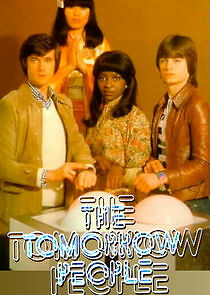
info
|
TV Show:
The Tomorrow People
( 1973 )
The Tomorrow People are British teens who have special powers. They can communicate to each other using telepathy. They can also transport themselves (they call it "Jaunting"). With the help of Tim their talking computer they battle the bad people of earth and space.
|
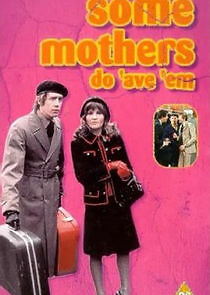
info
|
TV Show:
Some Mothers Do 'Ave 'Em
( 1973 )
Some Mothers Do 'Ave 'Em is a BBC television sitcom, created and written by Raymond Allen and starring Michael Crawford and Michele Dotrice. It was first broadcast in 1973 and ran for three series, ending in 1978. The series follows the accident-prone Frank Spencer and his tolerant wife, Betty, through Frank's various attempts to hold down a job, which frequently end in disaster. The sitcom was filmed in and around the town of Bedford in Bedfordshire. It was noted for its stuntwork, performed by Michael Crawford himself, as well as featuring various well-remembered catchphrases, that have become part of popular culture. In a 2004 poll to find Britain's Best Sitcom, Some Mothers Do 'Ave Em came 22nd.
|
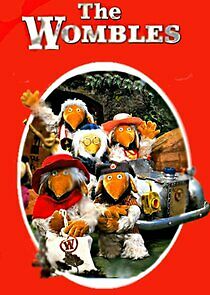
info
|
TV Show:
The Wombles
( 1973 )
The Wombles is a stop motion animated British television series made in 1973–1975. The Wombles are creatures that live underground, collecting and recycling human rubbish.
|
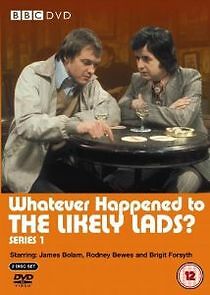
info
|
TV Show:
Whatever Happened to the Likely Lads?
( 1973 )
"Whatever Happened to the Likely Lads?" is a British sitcom which was broadcast between 9 January 1973 and 9 April 1974 on BBC1. It was the colour sequel to the mid-1960s hit The Likely LadThere were 26 episodes over two series; and a subsequent 45-minute Christmas special was aired on 24 December 1974.Since the ending of the original series, in 1966, Bob has left factory life behind for an office job, in his future father-in-law's building firm (something which makes Bob even more desperate to curry favour with Thelma and her family). But what Bob does for a living is not a major part of the show; more important is the simple fact that he is now a white-collar worker, and (at Thelma's urging) is joining badminton clubs, attending dinner parties, and – in all sorts of ways – appearing to Terry as aspiring to join the middle class. Terry sees Bob as a class traitor, and looks upon his own Army experience and solid working class ethos as giving him moral superiority.To a considerable degree, in fact, the comedy is built upon a basis of class warfare – a theme which was very familiar to British television audiences in the 1970s, a period of virtually continuous industrial strife in Britain. Terry is being left behind, a relic of the attitudes of the mid-1960s, due to his five-year absence in the Army; whereas Bob, Thelma, and Terry's sister Audrey – i.e. all the other main players in the show – have moved on, and are all to various degrees embracing more affluent, middle-class lifestyles. Terry is alone in clinging to his old beer-and-skittles Andy Capp lifestyle, as the others frequently tell him; and the tensions which this causes, between him and Bob, him and Thelma, and him and Audrey, are a main engine driving the comedy.Terry finds it particularly hard to adjust to all the changes which have occurred in the five years he's been away. As implied in the lyrics to the programme's theme song, the 1970s series plays on both lads' feelings of nostalgia for the lost days of their reckless youth. Both of them are depressed by the demolition of so many of the landmarks of their youth, though Bob, who works for a building firm, sometimes sees it as progress. Bob has also bought his own house, on a newly built estate – something else which sets him apart from his old friend.Reflecting the distinctions now separating the two young men, the opening credits show Terry amongst the older and more industrial buildings of the city, with Bob seen in modern, more attractive surroundings.
|
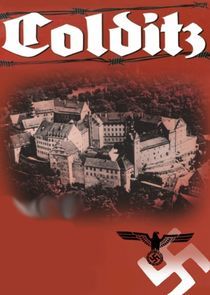
info
|
TV Show:
Colditz
( 1972 )
Colditz is a British television series co-produced by the BBC and Universal Studios and screened between 1972 and 1974.The series deals with Allied prisoners of war imprisoned at the supposedly escape-proofColditz Castle when designated Oflag IV-C during World War II, and their many attempts to escape captivity, as well as the relationships formed between the various nationalities and their German captors.
|
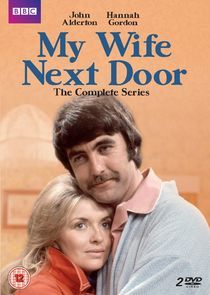
info
|
TV Show:
My Wife Next Door
( 1972 )
My Wife Next Door is a British sitcom created by Brian Clemens and written by Richard Waring. It was shown on BBC1 in 1972, and ran for 13 episodes. Following their application for divorce - but before the decree absolute - married couple George and Suzy Bassett each, unbeknownst to the other, decide to move to the country, escaping the London suburbs full of their memories together. Unfortunately, after having looked at moving shortly before their marriage broke down, they have their eyes on the same area and end up becoming next-door neighbours, with only a thin wall between them!
|
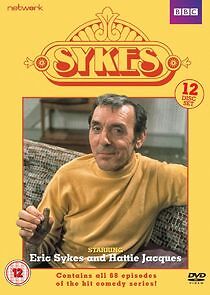
info
|
TV Show:
Sykes
( 1972 )
Classic sitcom starring Eric Sykes and Hattie Jacques as brother and sister twins who have to tackle the trials and tribulations of suburban life.
|
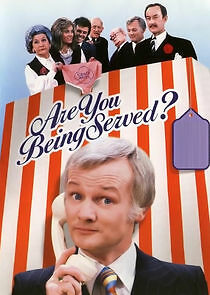
info
|
TV Show:
Are You Being Served?
( 1972 )
This comedy series, which follows the exploits of employees at London's Grace Brothers department store, is full of sexual innuendo, slapstick, visual gags and double entendres. Much of the show's humor parodies Britain's class system, with the characters rarely calling their co-workers by their given names. Many of the show's characters are based on stereotypes, including the effeminate Mr. Humphries and the rich-but-stingy store owner.
|
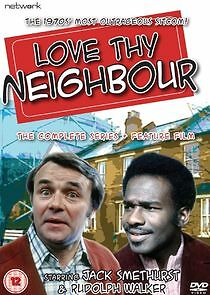
info
|
TV Show:
Love Thy Neighbour
( 1972 )
Love Thy Neighbour is a British sitcom, which was transmitted from 13 April 1972 until 22 January 1976, spanning seven series and fifty-four episodes. The series was produced by Thames Television for the ITV network. A hugely popular sitcom highlighting and examining the clashes of class, and colour, in early-1970s Britain. Eddie Booth is a passionately left-wing, somewhat racist bigot, so when his new neighbours turn out to be black, he's far from pleased. But even worse than that - they vote Conservative. Understandably, Eddie puts Bill's back up right from the off. Despite their differences, however, each man is far more alike the other than either would admit, and a begrudging respect develops between them. After all, there is a common enemy: their wives!
|
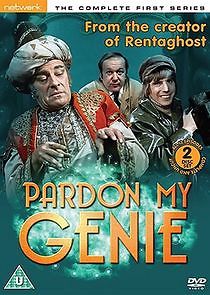
info
|
TV Show:
Pardon My Genie
( 1972 )
Hal is polishing some old watering cans at work when a genie appears out of one of them. The problem is that the genie's magic never seems to work properly.
|
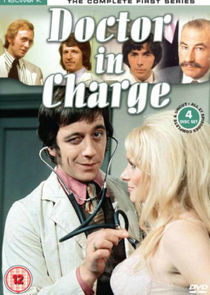
info
|
TV Show:
Doctor in Charge
( 1972 )
Doctor in Charge is a comedy series based on a set of books by Richard Gordon about the misadventures of a group of doctors.
|
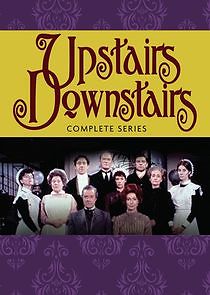
info
|
TV Show:
Upstairs, Downstairs
( 1971 )
Upstairs, Downstairs is a British television drama series originally produced by London Weekend Television and revived by the BBC.Set in a large townhouse in Edwardian, First World War and interwar Belgravia in London, the series depicts the lives of the servants "downstairs" and their masters—the family "upstairs". Great events feature prominently in the episodes but minor or gradual changes are also noted. The series stands as a document of the social and technological changes that occurred between 1903 and 1930.The series follows the lives of both the family and the servants in the London townhouse at 165 Eaton Place. Richard Bellamy, the head of the household, is a member of Parliament, and his wife a member of the titled aristocracy. Belowstairs, Hudson, the Scottish butler directs and guides the other servants about their tasks and (sometimes) their proper place. Real-life events from 1903-1930 are incorporated into the stories of the Bellamy household.
|
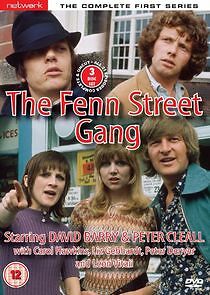
info
|
TV Show:
The Fenn Street Gang
( 1971 )
The Fenn Street Gang is a British television sitcom which ran for three seasons between 1971 and 1973. The series was created by John Esmonde and Bob Larbey, it was a spin off from their popular Please Sir! series.
|
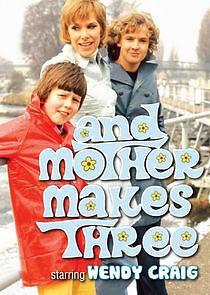
info
|
TV Show:
And Mother Makes Three
( 1971 )
Newly widowed mother Sally Harrison is trying to hold down a job as an assistant to Mr Campbell, a vet. Her children are Simon and Peter, and her aunt Flo tries to help. She has an occasional love interest in the form of antique bookseller, widower David Redway, who has a daughter Jane.
|
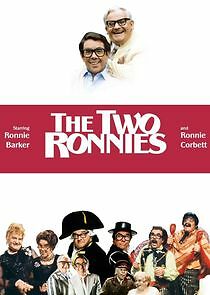
info
|
TV Show:
The Two Ronnies
( 1971 )
Long running BBC comedy show consisting of sketches and humourous musical routines involving the large Ronnie Barker and the small Ronnie Corbett.Most sketches involved both men, but occasionally only the one. Barker was excellent at fast talking and complicated dialog. Each week Corbett would tell a short joke and in doing so he'd digress and tell a dozen or more unrelated jokes on his way to the main punch line. Each series contained a mini comedy series as well as characters that'd return weekly. Also on the bill would be a musical piece from a well known singer/group.
|
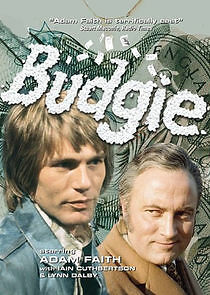
info
|
TV Show:
Budgie
( 1971 )
Classic 1970s drama, starring Adam Faith as petty crook Ron 'Budgie' Bird. Recently released from prison, Budgie soon finds himself embroiled in more petty scams and get rich quick schemes, none of which seem to end in success, and all of which seem to get Budgie in trouble with the police, and with his dodgy underworld boss, Charlie Endell (Iain Cuthbertson).
|
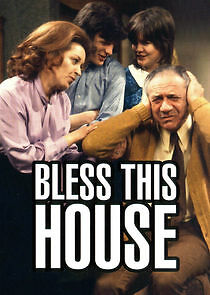
info
|
TV Show:
Bless This House
( 1971 )
Bless This House is a British sitcom that aired on ITV from 2 February 1971 to 22 April 1976. Starring Sid James and Diana Coupland, it was created by Vince Powell and Harry Driver, but mainly written by other hands including Dave Freeman and Carla Lane. It was made for the ITV network by Thames Television. In 2004, Bless This House came 67th in Britain's best sitcom.
|
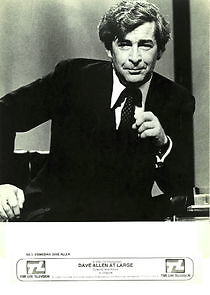
info
|
TV Show:
Dave Allen at Large
( 1971 )
Stand up (or rather sit down) comedy accompanied by traditional sketches orchestrated by Irish comedian Dave Allen and his assembled group of actors. The show was very popular in the UK in the 1970s and was exported to the US where it became a minor success after being shown intermittently on American public television or as late-night filler on the local networks.
|
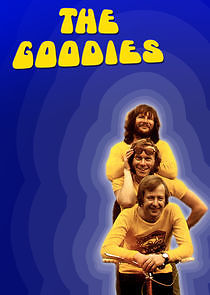
info
|
TV Show:
The Goodies
( 1970 )
This British version of The Monkees features three madcap comedians--Tim Brooke-Taylor, Graeme Gordon, and Bill Oddie--who would do "Anything, Anytime, Anywhere" to make money.
|
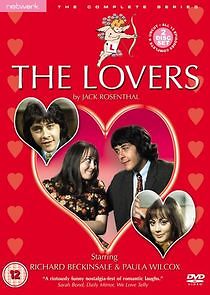
info
|
TV Show:
The Lovers
( 1970 )
The Lovers is a British television sitcom by Jack Rosenthal, starring Richard Beckinsale and Paula Wilcox as a courting couple, Geoffrey and Beryl. It was made between 1970 and 1971 by Granada Television for the ITV network.
|
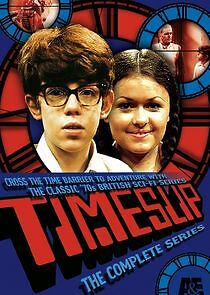
info
|
TV Show:
Timeslip
( 1970 )
Three children have vanished from the tiny Midlands village of St Oswald. First to disappear is local girl Sarah, then Simon Randall and Liz Skinner, who are on holiday with Liz's parents. Only Commander Traynor, an apparent stranger to the area, can offer some idea of where they are and that idea is so incredible and horrifying that the Skinners cannot believe it...
|
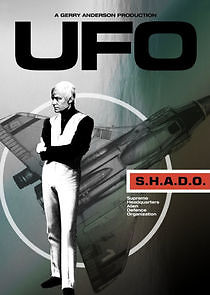
info
|
TV Show:
UFO
( 1970 )
Around 1970, the British and American governments receive incontrovertible evidence that aliens exist and are abducting humans. In cooperation with the United Nations, they set up a secret worldwide organization, SHADO (Supreme Headquarters Alien Defence Organisation), which operates in the 1980s. With resources and equipment under the seas, in the air, on land, in orbit and on the Moon, SHADO's purpose is to stop the alien incursions and find out why the aliens want humans.
|
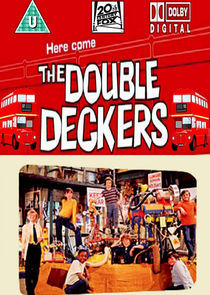
info
|
TV Show:
Here Come the Double Deckers
( 1970 )
Here Come the Double Deckers was a 17-part British children's TV series from 1970-71 revolving around the adventures of seven children whose den was an old red double-decker London bus in an unused junk yard.Each week saw the gang in a separate adventure including episodes based around a runaway homemade hovercraft, a chocolate factory and invading 'Martians' with guns that shot out chocolate candy, a disastrous camping holiday, collecting tin foil for a guide dog, becoming pop moguls with their protégé 'The Cool Cavalier' and a haunted stately home.The programme made its debut on 12 September 1970 at 10:30 am ET in the US on ABC, and at 4:55 pm on 1 January 1971 in Britain on BBC 1.
|
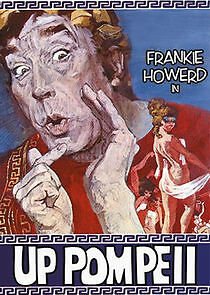
info
|
TV Show:
Up Pompeii!
( 1970 )
In the vein of and following in the footsteps of "A Funny Thing Happened on the Way to the Forum", this bawdy, risque, and hilarious British Comedy is rife with one liners, innuendos, and double entendres, and was the perfect comedy for Britain's mad comedian Frankie Howerd. From his attempt to begin each show with "The Prologue" to his final "Salut", what occurs in-between is pure Frankie Howerd. The cast around him are his props and his role as the slave Lurcio was one of his finest roles, played to comedic perfection. The series takes place in Pompeii, before the eruption of Vesuvius of course, and relates the day to day trials and tribulations of our star, the slave Lurcio played by Frankie Howerd. The innuendo's begin at once with the names of the characters in the series. Lurcio is slave to philandering Senator Ludicrus Sextus, a rather befuddled senator that is often at odds with both his wife and common sense.
|
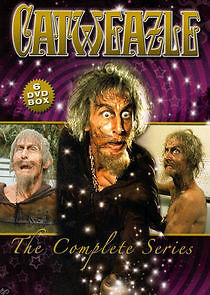
info
|
TV Show:
Catweazle
( 1970 )
The time-travelling Anglo-Saxon wizard Catweazle finds himself transported to the present day when one of his magical spells goes wrong.
|
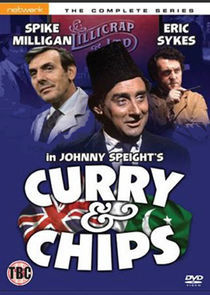
info
|
TV Show:
Curry and Chips
( 1969 )
Curry and Chips is an ITV sitcom set on the shop floor of Lillicrap Ltd, the makers of seaside novelties. Friction comes to the factory when a new Asian immigrant begins working there.
|
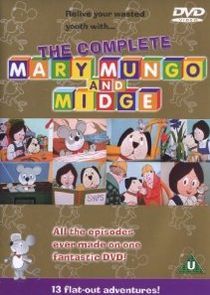
info
|
TV Show:
Mary, Mungo and Midge
( 1969 )
Mary, Mungo and Midge was a British animated children's television series, created by John Ryan and produced by the BBC in 1969.The show featured the adventures of a girl called Mary, her dog Mungo, and her pet mouse Midge, who lived in a tower block in a busy town. BBC newsreader Richard Baker narrated the episodes, with John Ryan's daughter Isabel playing Mary. The theme tune and other music for the series was provided by Johnny Pearson.This show was one of the first children's shows in the UK to reflect urban living. The programme showed Mary having adventures in a busy town, as opposed to in a wood, forest or other rural setting. The two featured animals were likely to be familiar to town dwellers, as opposed to the array of talking wildlife usually seen in children's television.In each episode, the three of them would descend in the lift from their flat in the tower block. After their adventures they would return home, Midge would press the button for the lift back to the correct floor, by standing on Mungo's nose.
|
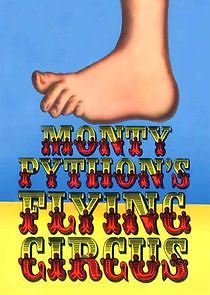
info
|
TV Show:
Monty Python's Flying Circus
( 1969 )
And now for something completely different: Monty Python's Flying Circus was simply the most influential comedy program television has ever seen. Five Englishmen, all working under the constraints of conventional TV shows such as The Frost Report (for which the five Englishmen wrote), gathered together with an expatriate American in the spring of 1969 to break the rules. The result, first airing on BBC-1 on October 5, 1969, has influenced countless future men and women in the media and comedy since.
|
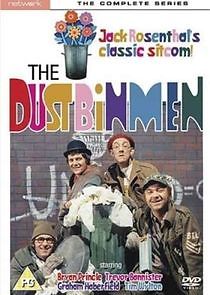
info
|
TV Show:
The Dustbinmen
( 1969 )
The Dustbinmen is an ITV comedy series that follows the antics of Cheese and Egg, Heavy Breathing, Smelly Ibbotson, Eric and Winston as binmen who do their rounds aboard 'Thunderbird 3' (Their rubbish truck) and who have always got a disparaging word to say about the people whose rubbish they pick up. Trying to avoid work as much as possible, the lads frequently find themselves at odds with Bloody Delilah, the feared inspector from the Corporation Cleansing Department.
|
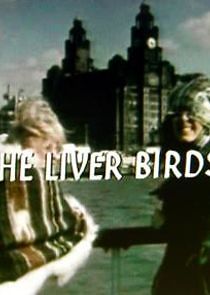
info
|
TV Show:
The Liver Birds
( 1969 )
The Liver Birds is a British sitcom, set in Liverpool, North West England, which aired on BBC1 from April 1969 to January 1979, and again in 1996. The show was created by Carla Lane and Myra Taylor. The two Liverpudlian housewives had met at a local writers club and decided to pool their talents.
|
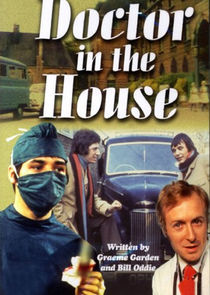
info
|
TV Show:
Doctor in the House
( 1969 )
Doctor in the House is a British television comedy series based on a set of books and a film of the same name by Richard Gordon about the misadventures of a group of medical students. It was produced by London Weekend Television from 1969 to 1970.
|
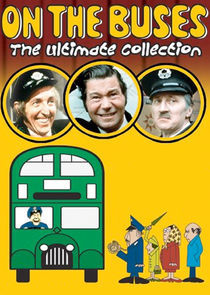
info
|
TV Show:
On the Buses
( 1969 )
Stan Butler works as a bus driver for the Luxton & District Bus Company. He lives at home with his overbearing mother, his frumpy sister Olive and his lazy brother in law Arthur. Stan's route is the number 11 to the Cemetary Gates which he works with his conductor Jack. Stan and Jack have an eye for the ladies and are often found chatting up either the female bus conductors or the canteen staff. The bane of Stan's life is Inspector 'Blakey' Blake who is often checking up of them and threatening them with the sack for lateness and untidyness.
|
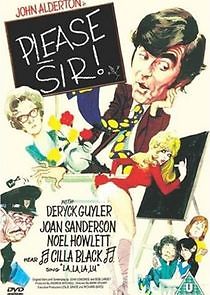
info
|
TV Show:
Please Sir!
( 1968 )
At Fenn Street School, Bernard Hedges, a young teacher fresh out of training college, tries to teach an unruly group of students.
|
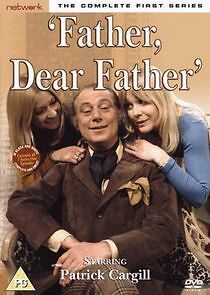
info
|
TV Show:
Father, Dear Father
( 1968 )
Father, Dear Father focused on divorced British novelist Patrick Glover and his daughters, Karen and Anna, a couple of lively girls in their teens. The family lives in Hampstead, London. Another member of the household is the girls' Nanny. As well as having to deal with his progeny, Patrick also faces frequent hassles with his ex-wife Barbara and her current husband Bill Mossman. There is also his brother Philip, his mother, his agent Georgie Thompson, his publisher Ian Smyth and his pet St.Bernard dog 'H.G. Wells'.
|
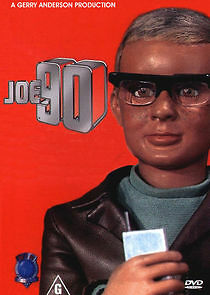
info
|
TV Show:
Joe 90
( 1968 )
Joe McClaine is a 9-year-old boy whose adoptive father has developed a method of transferring specialist "brain patterns", and hence skills, into his son's mind. As a result, Joe is able to become a test pilot, brain surgeon, etc, as needed. Combined with his innocent appearance, he becomes an agent for the World Intelligence.
|
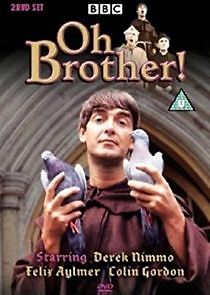
info
|
TV Show:
Oh Brother!
( 1968 )
Situation comedy series set in a monastery feturing the clumsy but loveable Brother Dominic from Mountacres Priory.
|
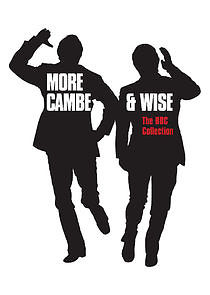
info
|
TV Show:
The Morecambe & Wise Show
( 1968 )
The Morecambe & Wise Show is a BBC television comedy sketch show and the third TV series by English comedy double-act Morecambe and Wise. It began airing in 1968 on BBC2, specifically because it was then the only channel broadcasting in colour, following the duo's move to the BBC from ATV, where they had made Two of a Kind since 1961.The Morecambe & Wise Show was popular enough to be moved to BBC1, with its Christmas specials garnering prime-time audiences in excess of 20 million, some of the largest in British television history.After their 1977 Christmas show, Morecambe and Wise returned to ITV, keeping the title The Morecambe & Wise Show.
|
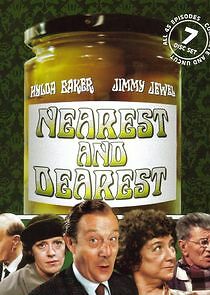
info
|
TV Show:
Nearest and Dearest
( 1968 )
Colne's finest pickle factory, Pledge's Purer Pickles, falls into the hands of Nellie and Eli Pledge after the death of their father, Joshua. Neither of the previously estranged siblings are that keen on taking on the business but they are forced into partnership by their father's bequest of £20,000 cash, should they keep the factory - and family home - running for at least 5 years.
|

info
|
TV Show:
Dad's Army
( 1968 )
A classic sitcom about a collection of elderly, unfit, or eccentric citizens unfit for military service who nonetheless plan, with no budget and incompetent training, to defend the British Isles from a possible German invasion at the height of World War II.
|
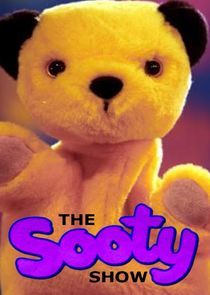
info
|
TV Show:
The Sooty Show
( 1968 )
The Sooty Show is a British children's television series that aired on BBC Television from 1955 until 1967, and on ITV from 1968-1992 It features the glove puppet characters Sooty, Sweep (who first appeared in 1957) and Soo (first appeared in 1964), and follows them in their many mischievous adventures. The show was presented from the 1955 to 1975 by Harry Corbett, and from 1976 to 1992 by his son, Matthew, as he bought the rights for Sooty for £35,000 from his father, and acted as the token human being. In 1981, The Sooty Show changed from a sketch-based format with a studio audience into a more sitcom-based format set in the Sooteries cottage.
|
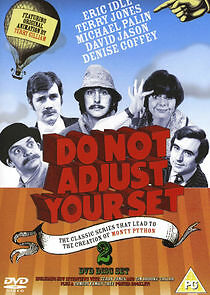
info
|
TV Show:
Do Not Adjust Your Set
( 1968 )
Short comedy sketches are performed by an ensemble cast accompanied by The Bonzo Dog Dooh Dah Band, an eccentric English group featuring Neil Innes was fronted by the late Vivian Stanshall. It included early appearances of many actors and comedians who later became famous, such as Denise Coffey and David Jason. Eric Idle, Terry Jones, and Michael Palin later became members of the hugely successful Monty Python comedy troupe.
|
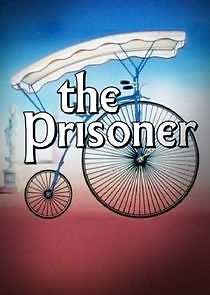
info
|
TV Show:
The Prisoner
( 1967 )
A British secret agent retires from his position... and is whisked away to a mysterious Village where people who know too much but can't be killed are kept for the security of the State. Which State? No one knows. The unnamed agent, dubbed "Number Six" since everyone in the Village, is only known by a number, defies the Village authorities and alternates between trying to escape and undermining his captors.
|
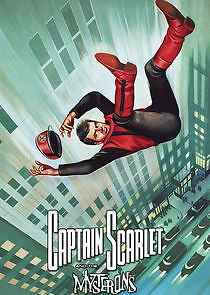
info
|
TV Show:
Captain Scarlet and the Mysterons
( 1967 )
The Mysterons: sworn enemies of Earth, possessing the ability to recreate an exact likeness of an object or person. But first, they must destroy. Leading the fight, one man fate has made indestructible. His name: Captain Scarlet.In the year 2068, a manned mission to the planet Mars ends in disaster when the crew of an Earth exploration vehicle encounters an amazing Martian city populated by the invisible Mysterons; misinterpreting the inhabitants' use of cameras as an act of aggression, the crew believe that they are under attack and destroy the entire complex with missiles. However, the Mysteron city then recreates itself using the unearthly process known as retrometabolism, and the enraged Mysterons vow to exact their revenge upon Earth by engaging humanity in a war of nerves. The Mysterons are able convert anyone or anything to their cause by destroying the original and then recreating it as a new, ‘Mysteronised' agent - capable of employing any means necessary to bring about the downfall of the human race…
Earth's line of defence against the alien attackers is the world security organisation known as Spectrum; led by Colonel White, Spectrum uses all its available resources to thwart the Mysteron threat, including a crack team of colour-coded agents, the sleek but deadly Angel Interceptors and the tank-like Spectrum Pursuit Vehicles. One of Spectrum's top agents is Captain Scarlet; once a Mysteron agent, Scarlet was able to throw off his conditioning and regain his sense of loyalty to Spectrum, with the added bonus that he is now indestructible. Fearless in his mission to protect Earth, Captain Scarlet is aided by the brave and intelligent Captain Blue, and together they attempt to defeat the menace of the Mysterons.Developed by Gerry Anderson, ‘Captain Scarlet and the Mysterons' is a darker, grittier series to its predecessor, ‘Thunderbirds'. The puppets used are more lifelike and correctly-proportioned, and the show has an increased level of reality and violence - characters are injured, and even die, and Spectrum are not always successful in defeating the latest Mysteron masterplan.
|
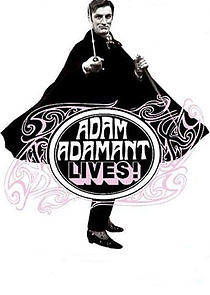
info
|
TV Show:
Adam Adamant Lives!
( 1966 )
Adam Adamant Lives features an adventurer born in 1867 who is revived from hibernation in 1966. Adamant vanished in 1902 when Edward VII had been on the throne just one year. Now Adam must negotiate the mod 1960s with the aid of Georgina Jones, and discovers that evil has a new face but is the same as in 1902.
|
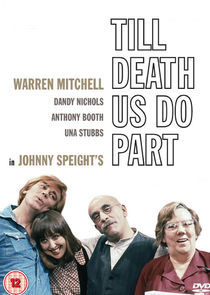
info
|
TV Show:
Till Death Us Do Part
( 1966 )
Till Death Us Do Part is a British television sitcom that aired on BBC1 from 1965 to 1975. First airing as a Comedy Playhouse pilot, the show aired in seven series until 1975. Six years later, ITV continued the sitcom, calling it Till Death.... From 1985 to 1992, the BBC produced a sequel In Sickness and in Health.Created by Johnny Speight, Till Death Us Do Part centred on the East End Garnett family, led by patriarch Alf Garnett (Warren Mitchell), a reactionary white working-class man who holds racist and anti-socialist views. His long-suffering wife Else was played by Dandy Nichols, and his daughter Rita by Una Stubbs. Rita's husband Mike Rawlins (Anthony Booth) is a socialist layabout. The character Alf Garnett became a well known character inBritish culture, and Mitchell played him on stage and television up until 1998, when Speight died.
|
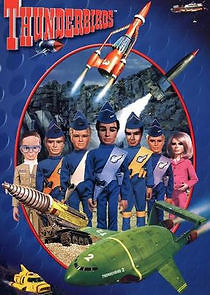
info
|
TV Show:
Thunderbirds
( 1965 )
Thunderbirds are Go!! The year is 2065. A secret organization has been formed by multi-millionaire Jeff Tracy. The team consists of his 5 sons and his engineer, Brains. His Grandma, Kyrano, and Tin-Tin also live with the family. They live on Tracy Island somewhere in the South Pacific. They have many secret undercover agents for the organization. One in particular is Lady Penelope and Nosey Parker. The two live in a mansion in London. Scott Tracy pilots Thunderbird 1. This ship is like a scout ship. Thunderbird 2 is piloted by Virgil Tracy. This ship carries all the rescue equipment including Thunderbird 4. Thunderbird 3 is piloted by Alan, John, and sometimes Scott. The craft is used as a ferry between Thunderbird 5 and space rescues. Thunderbird 4 is piloted by Gordon Tracy. This craft is for water rescues. Thunderbird 5 is a space station in outer space. It is monitored by John and Alan on monthly shifts.
|
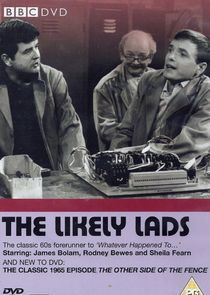
info
|
TV Show:
The Likely Lads
( 1964 )
"The Likely Lads" is an English sitcom created and written by Dick Clement and Ian La Frenais, and produced by Dick Clement.
Twenty episodes were broadcast by the BBC, in three series, between 16 December 1964 and 23 July 1966.The show followed the friendship of two working class young men, Terry Collier (James Bolam) and Bob Ferris (Rodney Bewes), in Newcastle upon Tyne in the mid 1960s.After growing up at school and in the Scouts together, Bob and Terry are working in the same factory, Ellison's Electrical, alongside the older, wiser duo of Cloughie and Jack. The show's gritty yet verbose humour derived largely from the tensions between Terry's cynical, everyman, working class personality and Bob's ambition to better himself and move to the middle class.Bob and Terry were two average working class lads growing up in the industrial North East, whose hobbies were beer, football and girls. They were "canny", which is to say street-wise, yet they stumbled into one scrape after another as they struggled to enjoy the Swinging Sixties on their meagre incomes.At the end of the third and final series in 1966, a depressed and bored Bob attempted to join the Army but was rejected because of his flat feet. Terry, who decided at the last minute to enlist to keep Bob company, was accepted A1 and shipped away for three years.
|
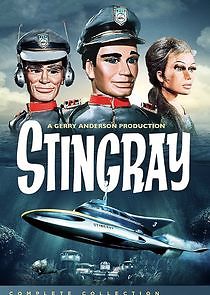
info
|
TV Show:
Stingray
( 1964 )
"Stand by for Action! We're about to launch Stingray! Anything can happen within the next half hour!" Set in the year 2064, Stingray is about the World Aquanaut Security Patrol (WASP) who patrol the world's oceans, helping and defeating underwater races. The pride of WASP is the revolutionary submarine Stingray, which is controlled by Captain Troy Tempest and Lieutenant George Lee Sheridan, better known as "Phones".
|
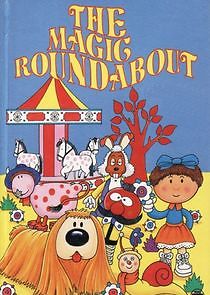
info
|
TV Show:
The Magic Roundabout
( 1964 )
A group of friends embark on a dangerous journey in an effort to imprison their oppressor - the evil wizard Zeebad. Based on characters created in the popular childrens' TV series.
|
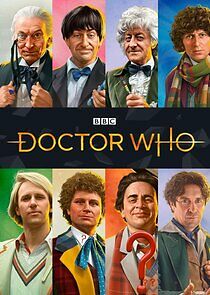
info
|
TV Show:
Doctor Who
( 1963 )
Doctor Who is the longest-running science fiction TV series in history, airing initially from 1963 to 1989. Doctor Who is about ideas. It pioneered sophisticated mixed-level storytelling. Its format was the key to its longevity: the Doctor, a mysterious traveller in space and time, travels in his ship, the TARDIS. The TARDIS can take him and his companions anywhere in time and space. Inevitably he finds evil at work wherever he goes..
|
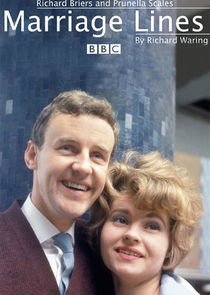
info
|
TV Show:
Marriage Lines
( 1963 )
Marriage Lines is a British television sitcom first broadcast between 1963 and 1966. The series gave Richard Briers and Prunella Scales, its lead stars, a significant boost in their careers. George and Kate Starling are a newly married couple, and the comedy came from many ordinary domestic situations. George was a junior clerk in an office and wanted the public house camaraderie of the single men in his office, while Kate gets increasingly frustrated by her domestic duties. In the third series, Kate gives birth to a daughter Helen. The last episode of the fourth series, Goodbye George – Goodbye Kate, showed the couple going to live in Lagos, Nigeria because of George's jobs. This was meant to be the last episode, however a fifth series was commissioned. The Starlings' returned to England as Kate was pregnant again, and gave birth in the final episode.
|
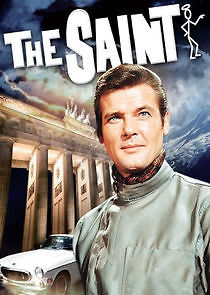
info
|
TV Show:
The Saint
( 1962 )
Simon Templar is... The Saint! A gentleman adventurer, Simon travels around the world living the life of a wealthy playboy. He's made his money by taking cash from the unsaintly--criminals--and giving much of it back to their victims while keeping a bit for himself. This modern-day Robin Hood takes on criminals, spies, and conmen of all varieties.
|
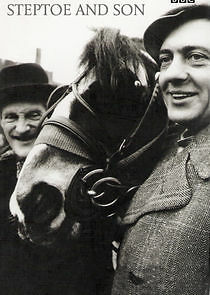
info
|
TV Show:
Steptoe and Son
( 1962 )
Classic British comedy series about a middle aged man and his elderly father who run an unsuccessful 'rag and bone' business (collecting and selling junk). Harold (the son) wants to better himself but his father always seems to ruin things, sometimes accidentally and other times deliberately. The two live in poverty and the father has some disgusting habits which continue to embarrass the son.
|
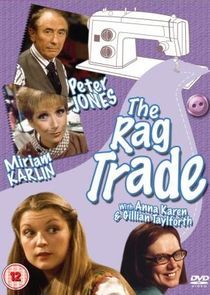
info
|
TV Show:
The Rag Trade
( 1961 )
The Rag Trade was a British television sitcom broadcast by the BBC between 1961 and 1963 and by LWT between 1977 and 1978.The action centred on a small clothing workshop (the title refers to the textile industry), Fenner's Fashions in London. Although run by Harold Fenner (Peter Jones) and Reg Turner the foreman and pattern cutter (Reg Varney), the female workers are led by militant shop steward Paddy Fleming (Miriam Karlin), ever ready to strike, with the catchphrase "Everybody out!" Other cast members included Sheila Hancock (as Carole Taylor), Esma Cannon (as Lily Swann), Wanda Ventham (as Shirley) in series 2 and Barbara Windsor (as Gloria) in series 1 and (as Judy) in series 3 replacing Sheila Hancock.The Rag Trade was revived by ITV company LWT in 1977, with Jones and Karlin reprising their roles. The 1977 version ran for two series, most of the scripts being based on the BBC episodes from the 1960s, and featured Anna Karen (reprising her role as Olive from On the Buses) and future EastEnders star Gillian Taylforth as factory workers.
|
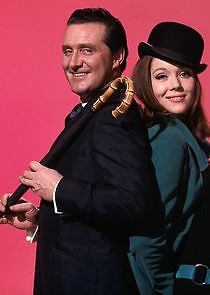
info
|
TV Show:
The Avengers
( 1961 )
Urbane John Steed and a variety of partners work for an elite organization tasked with investigating criminal and espionage matters within the UK. Their opponents use everything from standard techniques to robots and other science fiction gadgetry.
|
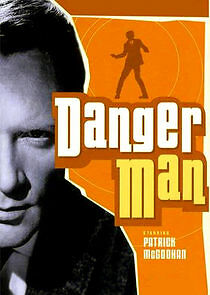
info
|
TV Show:
Danger Man
( 1960 )
Every government has its secret service branch. America, CIA; France, Deuxième Bureau; England, MI5. NATO also has its own. A messy job? Well that's when they usually call on me or someone like me. Oh yes, my name is Drake, John Drake.
|
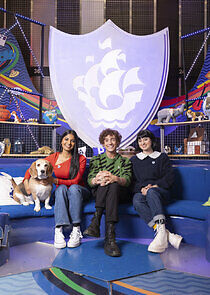
info
|
TV Show:
Blue Peter
( 1958 )
Ever since the world's longest running live children's programme began on the 16th October 1958 it has grown from strength to strength! With new viewers in each generation, the show is rapidly becoming more and more popular, with CBBC presenters coming and going, new ideas and skills are added to the mix of the current presenters.
|
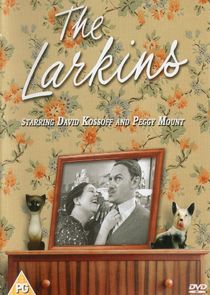
info
|
TV Show:
The Larkins
( 1958 )
Meet the Larkins--the put-upon and crafty Alf, his domineering wife, Ada, aimless son Eddie, daughter Joyce and her American ex-GI husband Jeff, a barely employable writer of stories for cowboy comic "The Bullet". They all live in a state that falls somewhat short of domestic bliss at 66, Sycamore Street, in a suburb of London, next to inquisitive neighbour Hetty and her family.
|
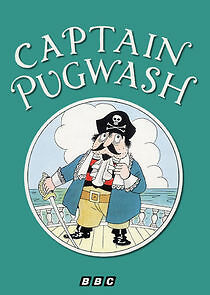
info
|
TV Show:
Captain Pugwash
( 1957 )
Captain Pugwash is a fictional pirate in a series of British children's comic strips and books created by John Ryan. The character's adventures were adapted into a TV series, using cardboard cut-outs filmed in live-action (the first series was performed and broadcast live), also called Captain Pugwash, first shown on the BBC in 1957, a later colour series, first shown in 1974–75, and a traditional animation series, The Adventures of Captain Pugwash, first aired in 1998The eponymous hero – Captain Horatio Pugwash – sails the high seas in his ship called the Black Pig, ably assisted by cabin boy Tom, pirates Willy and Barnabas, and Master Mate. His mortal enemy is Cut-Throat Jake, captain of the Flying Dustman.
|
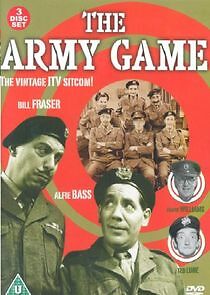
info
|
TV Show:
The Army Game
( 1957 )
A group of National Service conscripts are determined to dodge duty and create some amusement out of a situation they'd rather not be in.
|
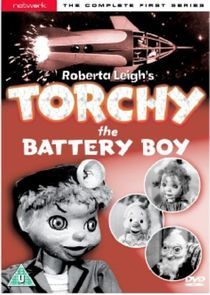
info
|
TV Show:
Torchy the Battery Boy
( 1956 )
Torchy is a battery-powered toy boy with a lamp in his hat, and an on-off switch on his chest. He lives with old Mr Bumbedrop and his straight-haired poodle Pom-Pom in a little cottage with a large garden that's always full of children. Torchy's lamp is magic. He can shine it away into the night and talk to people far away, like the toys who live in Topsy Turvy Land.Mr Bumbledrop has built Torchy his very own space rocket too, which can whisk him away to this amazing realm where the toys frolic in lollipop fields and cream buns grow on trees, and there are lots of exciting things to do and to discover in Frutown, if your battery doesn't run down...
|
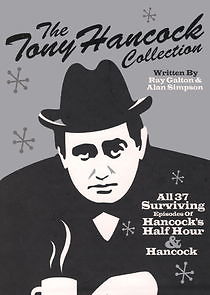
info
|
TV Show:
Hancock's Half Hour
( 1956 )
TV version of the popular BBC radio show of the same name, with Tony Hancock as the modern man of the world (in his own eyes). Sid James is there to bring him back to earth.
|
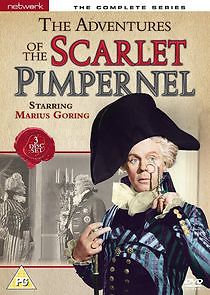
info
|
TV Show:
The Adventures of the Scarlet Pimpernel
( 1955 )
The Adventures of the Scarlet Pimpernel is an ITV series about an enigmatic adventurer who risks his life to save innocent French aristocrats from the guillotine during Robespierre s revolutionary Terror.
|
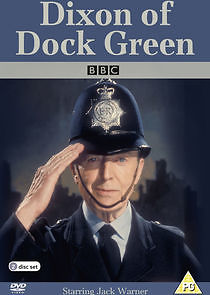
info
|
TV Show:
Dixon of Dock Green
( 1955 )
Dixon of Dock Green was a BBC television series about daily life at a London police station, with the emphasis on petty crime, successfully controlled through common sense and human understanding. The central character was a mature and sympathetic police constable, George Dixon, played by Jack Warner in all of the 432 episodes, from 1955 to 1976.Dixon was the embodiment of a typical 'bobby' who would be familiar with the area and its residents in which he patrolled and often lived there himself. The series contrasted sharply with later programmes such as Z-Cars, which reflected a more aggressive policing culture; however its popularity cannot be underestimated, retaining a faithful following throughout its run and being voted second most popular programme on British TV in 1961.
|
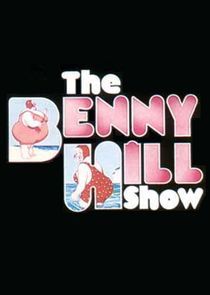
info
|
TV Show:
The Benny Hill Show
( 1955 )
The Benny Hill Show is a British comedy television show that starred Benny Hill and aired in various forms between 15 January 1955 and 30 May 1991 in over 140 countries.The Benny Hill Show features Benny Hill in various short comedy sketches and occasional, extravagant musical performances by artists of the time. Hill appears in many different costumes and portrays a vast array of characters. Slapstick, burlesque and double entendresare his hallmarks. A group of critics accused the show of sexism, and Hill responded by claiming that female characters kept their dignity while the men who chase them were portrayed as buffoons.The show often uses undercranking and sight gags to create what he called "live animation", and he employs techniques like mime and parody. The show typically closes with a sped-up chase scene involving him and often a crew of scantily-clad women (usually with Hill being the one chased, due to silly predicaments that he himself caused), a takeoff on the stereotypical Keystone Kops chase scenes. Hill also composed and sang patter songs and often entertained his audience with lengthy high-speed double-entendre rhymes and songs, which he recited or sang in a single take.Hill also used the television camera to create comedic illusions. For example, in a murder mystery farce entitled "Murder on the Oregon Express" from 1976 (a parody of Murder on the Orient Express) Hill used editing, camera angles, and impersonations to depict a Quinn Martin–like TV "mystery" featuring Hill in the roles of 1970s American television detectives Ironside, McCloud, Kojak, Cannon and Hercule Poirot.
|
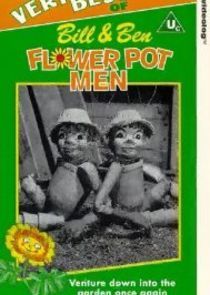
info
|
TV Show:
The Flower Pot Men
( 1952 )
The Flower Pot Men is a British children's programme, produced by BBC television, first transmitted in 1952, and repeated regularly for more than twenty years.Originally, the programme was part of a BBC children's television series titled Watch with Mother, with a different programme each weekday, most of them involving string puppets. The Flower Pot Men was the story of Bill and Ben, two little men made of flower pots who lived at the bottom of an English suburban garden. The characters were devised by Freda Lingstrom and Maria Bird. Three later stories were written by Hilda Brabban. The puppeteers were Audrey Atterbury and Molly Gibson. The voices and other noises were produced byPeter Hawkins, Gladys Whitred and Julia Williams. The narration for all episodes was done by Maria Bird.
|
|


tyetoes : I loved it.He did so much for molly.He made her a little house.so sweet.Great story:)